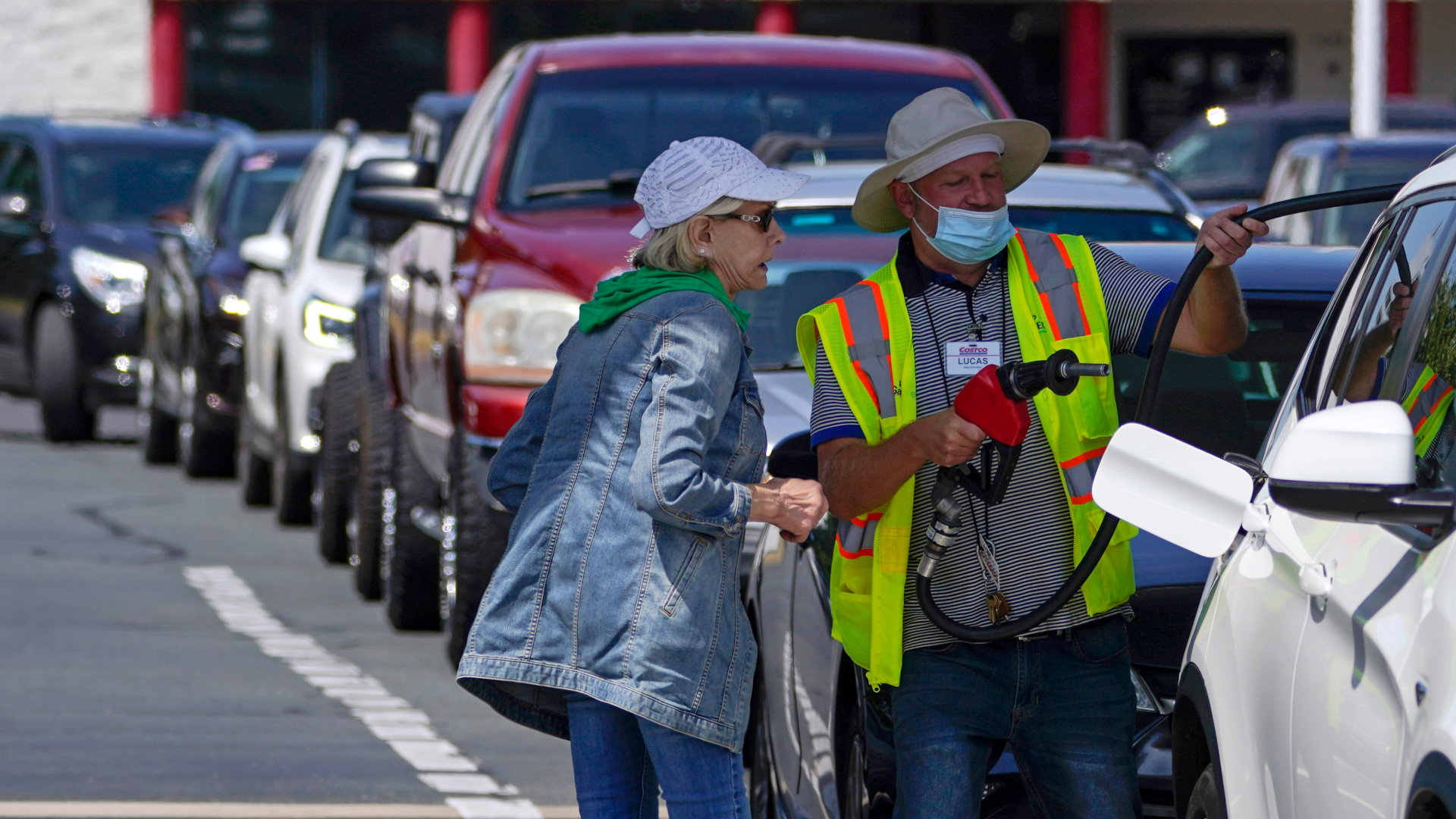

The prolonged shutdown of the massive Colonial Pipeline, responsible for delivering up to 45 percent of the fuel needs of the southeastern United States, has caused widespread shortages and panic buying across the region. But thankfully, the company that controls it released a statement Wednesday evening saying it’s finally restarted operations, more than five days after last Friday’s ransomware attack.
Unfortunately, the pipeline’s restart is not an instant fix to the shortages ravaging the affected states. Due to the slow speed at which fuel travels through the 5,100-mile pipeline—around 5 mph—it could take on the order of 15 days for fresh gasoline to reach New York from Houston refineries. Heavier fuels like diesel and jet fuel could take even longer, closer to 19 days total. It’s then a matter of tanker trucks rolling out to get the fuel to gas stations so customers can fill up.

Regardless of the timeline, the pipeline restart is welcome news for gas stations, with many pumps running dry as drivers rushed to fill their tanks in anticipation of a longer-term lack of supply. North Carolina was worst hit, with 70 percent of pumps out of gas at the time of writing, with Georgia and South Carolina reporting in at 47 percent and 49 percent of gas stations empty respectively. GasBuddy analyst Patrick De Haan expects shortages to get worse before they get better, as fresh fuel supplies take their time to reach customers at the pump. Thankfully, the states worst hit by shortages are also closer to the Houston refineries; northern states like New Jersey and Massachusetts both report less than 10 percent of pumps running out of gas.
The company will likely not pay the ransom demanded by the hackers, reports CNN. Efforts by a coalition of U.S. government agencies and private companies have taken down servers run by the group known as DarkSide, and Colonial Pipeline expects to be able to restore its systems from backups. The hackers had demanded millions of dollars worth of cryptocurrency as payment, though government guidance recommends against coalescing to such demands. On Wednesday, White House Press Secretary Jen Psaki noted the official FBI line on paying out ransomware attacks. “Of course, the guidance from the FBI is not to do that,” she said.

New details from within Colonial Pipeline have come to light surrounding the decision to shut off supply. Those briefed on the matter have suggested that fuel flows were shut down due to the company’s billing system being compromised. Company officials were reportedly concerned that they would not be able to accurately bill customers for fuel delivered, and chose to stop delivery instead.
No evidence available has pointed to the pipeline’s operational systems actually being compromised. Of course, in the wake of the initial hack, the full scale of the ransomware’s penetration into company systems would have been unknown. Thus, the decision to shutdown could easily be explained as taking a highly cautious approach.
With the pipeline burbling back into life, it’s hoped that the news will help stem the frenzied panic buying which caused shortages in the first place. In the wake of the shutdown, national average gas prices exceeded $3 a gallon for the first time since 2014, and hoarding behavior spurred worries of shortages nationwide and even fistfights at the pumps. With the pipeline now up and running again, hopefully everybody can calm down and get back to normal business. Please?
Got a tip? Let us know: tips@thedrive.com